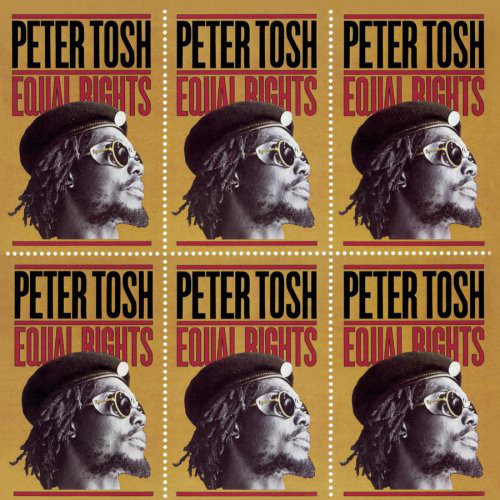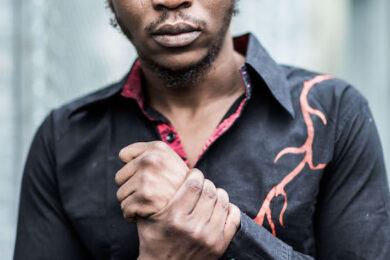3. Peter ToshEqual Rights

This was when Tosh was still in The Wailers. I tell my friends I met Peter, as a young kid, when he came to my house in Nigeria and met my father, and he was smoking weed out of a bottle. He would drink a big huge bottle, and fill it up with weed and put a cloth on the other side of the bottle and make a bong. It was really cool. Not that that is my only memory of him.
‘Equal Rights’ is a song that speaks to the main psychological problem in the modern life. Because the west is always so adamant about peace, but nobody is speaking for justice. Animals can be peaceful. Animals can relax, they are allowed to have peace in the jungle, leave them to their means, let them be in peace, but nobody knows justice for the animals.
I mean, even today, when black people are shot in America, or anywhere, immediately the world says, "Oh, why was he resisting arrest, why does he not comply." But there is nowhere in the constitution that says, resisting arrest, or not complying with an officer, is a death sentence. But people always argue for this point, because the humanity of the black man is still questioned, fundamentally. No matter what anybody tries to say, or how they try to disguise it, or smooth it over, we are the only group in the world, whose humanity is completely questioned.
This is one of the voices of our ancestors. It was revolutionary music, because radio was big, it was a big hit record. I would compare it to the music on [Bob Marley & The Wailers’] Exodus. But the message was completely transcended; it was completely holy, completely righteous and struck a nerve. Evergreen, you know.
I would not say that the melody was catchy on the take, but the words. I mean, just so straight, so forward, so true.
And the message of the music coming out of Jamaica at this time was similar to what your father was saying in Africa?
Yes, of course. One of the things going on in the 70s, was that the African rulers were instructed to stop the building of bridges by the diaspora in the motherland. The new black leaders tried to connect with Malcolm X and [Burkina Faso’s revolutionary leader] Thomas Sankara, and everybody. Sankara met my father and they had to come down hard on that bridge to destroy the link. So we don’t have that anymore, it has to be rebuilt, new bridges.


